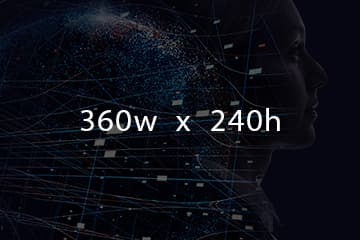Aug 19, 2025
Navigating the Sovereign AI Era

Sovereign AI has evolved from an emerging concept into a national-level strategy. With a focus on autonomous control over AI technologies, infrastructure and data assets, the idea of sovereign AI is profoundly reshaping the global AI infrastructure market, presenting challenges along with immense opportunities for server manufacturers. Because of sovereign AI, market demand is shifting from standardized hardware to highly customized, ultra-secure, localized integrated solutions. Selecting an infrastructure partner capable of supplying solutions that meet the requirements of sovereign AI is the key to implementing a successful strategy, and ASUS stands ready to answer the call.
ASUS: Leading National AI Infrastructure Revolution
ASUS is Taiwan’s AI computing infrastructure leader, having powered national supercomputing projects like Taiwania 2 and Forerunner 1. Supporting seven major national-level supercomputing centers, ASUS has helped bolster Taiwan’s technological edge. In 2025, ASUS is leading Taiwan’s first GB200 AI supercomputer project for AI and cloud platforms, leveraging in-house expertise to propel Taiwan’s AI prowess onto the global stage.
The Rise of Sovereign AI: From Concept to Global Strategy
Sovereign AI emphasizes national or regional autonomy in AI software and hardware development, control, and deployment, driven by concerns over data security, digital sovereignty, and reducing reliance on foreign technology platforms. With the rise of generative AI, data has become a critical national asset, necessitating secure, localized infrastructure for AI computation. Leading chipmakers like NVIDIA®, Intel®, and AMD actively promote sovereign AI initiatives worldwide, supporting localized AI infrastructure development across Asia, Europe, and the Middle East. Taiwan’s government has launched an initiative that focuses on major AI projects, investing NT$190 billion to develop AI infrastructure to empower more engaging intelligent applications. Led by the National Center for High-Performance Computing (NCHC), these efforts expand supercomputing capacity with H100 GPUs, strengthening Taiwan’s technological sovereignty.
A Paradigm Shift for Server Manufactures and Solution Providers
Sovereign AI demands servers that safeguard sensitive national computations with hardware and software security. Realizing this goal requires localized manufacturing of hardware and deployment strategies aligned with national policies. This shift in requirements is driving a fundamental transformation for server manufacturers.
• Customer demand now centers on comprehensive solutions covering design, manufacturing, deployment, security, and management.
• Manufacturers are expected to extend their role from hardware assemblers to infrastructure planners and integrators.
• Deployment models vary by country: local hardware, design, and manufacturing demands require manufacturers to operate on a global scale.
Market Opportunities and Business Model Innovation
The sovereign AI trend is projected to fuel rapid growth in AI server markets, reaching nearly US$298 billion by 2025 and accounting for greater than 70% of total revenue for server manufacturers. This shift is also driving new business models, with a focus on:
• Shifting from build-to-own to operate-to-use, with distributed edge AI and regional data centers;
• Emphasizing value creation over raw compute power, enabling low-cost, secure, and deployable AI solutions;
• Supporting enterprise sovereign AI models that integrate decades of unstructured knowledge with AI, driving demand for private deployments and knowledge graph training servers
Keys to Securing a Competitive Advantage: Core Server Features and Capabilities
When evaluating sovereign AI infrastructure partners, it is essential to consider the following factors to ensure comprehensive, end-to-end services and fully integrated resources.
1. Vertical Integration & Supply Chain Resilience: To counter geopolitical risks and tariffs
2. Cutting-Edge Cooling Technologies: Liquid cooling — especially Direct Liquid Cooling (DLC) for high-density AI servers
3. End-to-End Security Design: Incorporation of hardware roots of trust, firmware protection, and zero-trust architectures to defend against emerging threats, including quantum computing
4. Localized Production & Global Footprint: To meet sovereign manufacturing requirements and reduce supply chain vulnerabilities
5. Hardware-Software Ecosystem Integration: Collaboration between chipmaker and software partners make it possible to deliver optimized AI factory solutions, supporting mainstream AI stacks like CUDA and ROCm
ASUS: A Trusted Partner in the Sovereign AI Era
The sovereign AI trend is transforming the server industry, raising the bar for technology, security, and localized service. ASUS leverages its strengths in computing, integration, and security to deliver turnkey AI solutions across hardware, software, cloud,
and edge—making ASUS a key partner for sovereign AI and digital infrastructure transformation.
Client Success Stories

[ASUS Powers National Biomedical AI Supercomputer, Helping Revolutionize Life Sciences]
In 2022, ASUS partnered with the National Institutes of Health to build a biomedical AI supercomputer based on its robust AIHPC platform and NVIDIA SDK (Software Development Kit). This partnership drives breakthroughs in biomedical research and precision medicine, enabling top Taiwanese medical institutions to advance life science research with cutting-edge technology. ASUS handled model development, infrastructure maintenance, and optimization to ensure seamless AI compute performance. The supercomputer delivers significant efficiency: genomic data analysis runs 87 times faster, molecular dynamics simulations 9 times faster, and AI image annotation and natural language processing are accelerated by up to 180–250 times, compared to traditional CPUs.

[Transforming Public Safety and Governance with the Smart City AI Platform]
In 2019, ASUS worked with a Taiwanese local city government to provide the essential AI infrastructure and computing power to help drive Taiwan’s first Smart City Dynamic Image AI platform. Leveraging advanced ASUS GPU/CPU servers, storage solutions, and service management, the platform delivers unified data aggregation and AI-driven insights for the local city government. Essential information is presented on the seamless Smart City dashboard, including traffic flow analytics, heat maps, and social distancing facemask detection. The KVM-based service platform and CNCF-certified Kubernetes ensures efficient training, inferencing, and container services. This collaboration enhances public safety, optimizes traffic, promotes data-driven governance, and fosters innovation while improving cost efficiency




